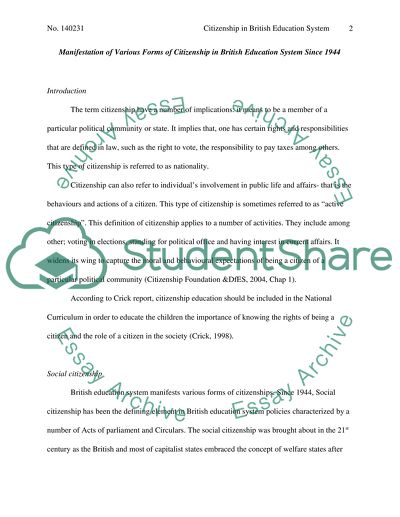Cite this document
(Forms of Citizenship in the British Education System Literature review, n.d.)
Forms of Citizenship in the British Education System Literature review. https://studentshare.org/social-science/1509401-manifestation-of-various-forms-of-citizenship-in-british-education-system-since-1944
Forms of Citizenship in the British Education System Literature review. https://studentshare.org/social-science/1509401-manifestation-of-various-forms-of-citizenship-in-british-education-system-since-1944
(Forms of Citizenship in the British Education System Literature Review)
Forms of Citizenship in the British Education System Literature Review. https://studentshare.org/social-science/1509401-manifestation-of-various-forms-of-citizenship-in-british-education-system-since-1944.
Forms of Citizenship in the British Education System Literature Review. https://studentshare.org/social-science/1509401-manifestation-of-various-forms-of-citizenship-in-british-education-system-since-1944.
“Forms of Citizenship in the British Education System Literature Review”. https://studentshare.org/social-science/1509401-manifestation-of-various-forms-of-citizenship-in-british-education-system-since-1944.


